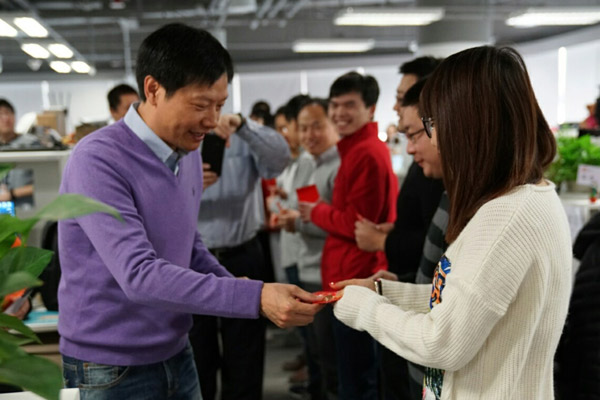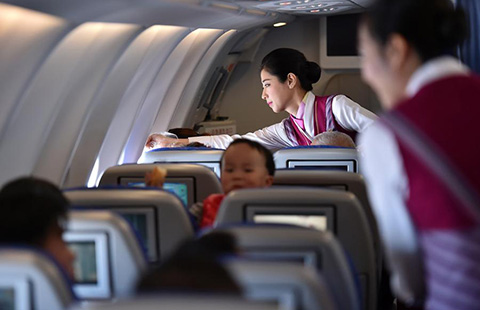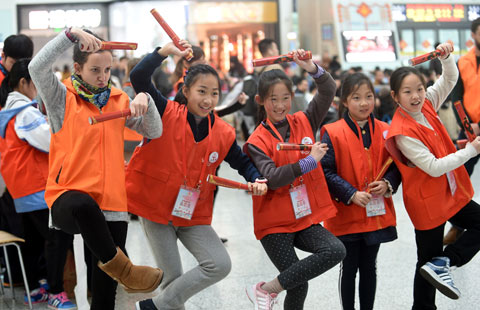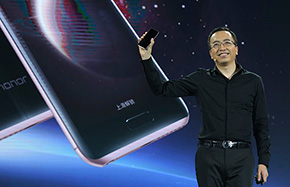Passengers, cabbies hail mobile taxi apps
By Xu Xiao (China Daily) Updated: 2013-03-25 05:54"Every day when I wake up, I feel I owe someone 300 yuan," said a Beijing taxi driver surnamed Zhang. He added that 4,000 yuan is the most he can earn in a month.
Compared with other large cities in the world, Beijing's taxi fees are low. For a decade, the minimum charge has remained 10 yuan while fuel prices have more than doubled from 3 yuan a liter to 8 yuan.
As a result, many drivers have become picky of their routes and passengers. Some would rather take break during most of the day and then work in high-demand areas during rush hour to avoid driving around the city empty much of the time but still consuming fuel.
Not in a strong position to bargain with taxi companies on fees and facing rising fuel prices, many are turning to new mobile apps to improve efficiency.
And taxi companies are willing to develop and use the software rather than lower charges to cab drivers.
Shanghai's Dazhong Transportation Group is now using a mobile reservation system it developed. It charges 4 yuan for each deal.
Such software is already popular in other countries. Uber, a similar app, has a wide user group in the US.
Although both Beijing drivers and passengers applaud the development, there are some concerns.
Drivers who offer illegal passenger services can also use the apps, resulting in unfair competition between taxis and fake cabs.
Some consumers are concerned that the promise of a big tip during rush hour may cause a host of drivers using the app to descend on the same fare while neglecting others, which could also worsen traffic congestion.
"A 10-yuan tip does not work in rush hour, but if I offer 20 yuan extra in a bid on the app, there is always a driver contacting me in no more than 30 seconds," said one Didi Taxi user in an online forum.
xuxiao@chinadaily.com.cn
- Tech companies offer bonuses to motivate employees after holiday
- China cultural industry expands faster in 2016
- Alibaba opens Australian, New Zealand headquarters in Melbourne
- China tops world in PV energy capacity in 2016
- New trends of China's overseas travel in Spring Festival
- China signals neutral monetary policy with rate hikes
- Caixin service PMI falls slightly to 53.1
- Chinese educational-technology company to enter Aussie share market

















